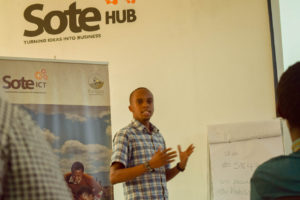Introduction
Sustainability
Access to Finance for the Young Enterprises
Community Leadership
Market Development
Selection of the Right Youngsters to Run A Business
Inclusiveness of (Young) Women in Women Unfriendly Areas
Fruitful Mentor System
Smart Models / Tools for Young Enterprises
On Rural Hub-Making
Most Promising Initiatives
 |
Most models are project based and paid by donors. However, we uncovered some examples on building financial sustainability models for the rural hubs to not rely exclusively on donor funding:
Sell Services
- Sell (ICT, business, recruitment, training) services and mobile technology to local government, NGOs, private sector and schools. (see for example Sote Hub)
Entrepreneurial Youth as Hub Leaders/Managers
- Nominate (by communities, youngsters and all stakeholders) and select (by jury) and train key talented youngsters to be program officers - their entrepreneur-mentality is essential. Give them a legal status and let them sell various products and services through the Hub to local government, banks, communities and clans, other youngsters, private sector. (see for example Cool Farming)
Success Fee Structures
- Organise a suitable deal structure between the Hub and its users (the rural businesses) that creates a success based income for the ub, when the businesses start making profits.
Co-ownership and Co-creation (see also part on ‘Community led’)
- Including a wide range of local stakeholders, from the government and existing social groups, to community elders, parents and even the youth, extends a sense of shared responsibility and ownership, and overall success. (Tunapenda, Impact Hub, etc.)
|

